Anthropology
-
 Humans
HumansHere’s where jazz gets its swing
Swing, the feeling of a rhythm in jazz music that compels feet to tap, may arise from near-imperceptible delays in musicians’ timing, a study shows.
By Nikk Ogasa -
 Anthropology
AnthropologyTina Lasisi wants to untangle the evolution of human hair
Tina Lasisi is pioneering studies of human variation in an ethical and scientifically sound way.
By Aina Abell -
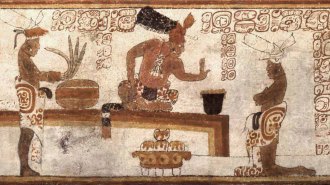 Anthropology
AnthropologyIn Maya society, cacao use was for everyone, not just royals
Previously considered a preserve of Maya elites, cacao was consumed across all social strata, a new study finds.
-
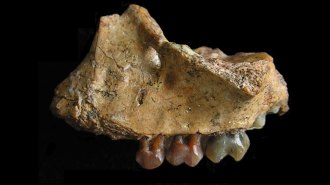 Anthropology
AnthropologyFossil finds put gibbons in Asia as early as 8 million years ago
Specimens from China raise questions about the evolutionary ID of an even older ape tooth from India.
By Bruce Bower -
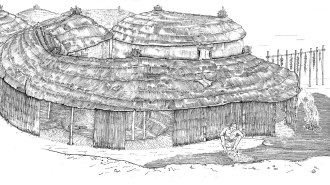 Anthropology
AnthropologyHumans may have started tending animals almost 13,000 years ago
Remnants from an ancient fire pit in Syria suggest that hunter-gatherers were burning dung as fuel by the end of the Old Stone Age.
-
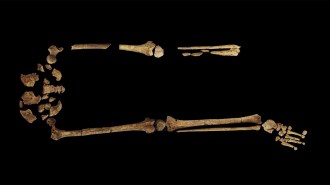 Anthropology
AnthropologyThe oldest known surgical amputation occurred 31,000 years ago
A young adult on the island of Borneo survived a lower left leg removal thanks to medically savvy rainforest surgeons.
By Bruce Bower -
 Anthropology
AnthropologyHow mythology could help demystify dog domestication
The path that dog myths took around the world closely parallels that of dog domestication, a new study finds.
-
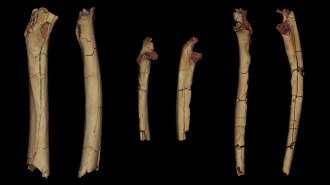 Anthropology
Anthropology7-million-year-old limb fossils may be from the earliest known hominid
An earlier report on one of the bones of a 7-million-year-old creature that may have walked upright has triggered scientific misconduct charges.
By Bruce Bower -
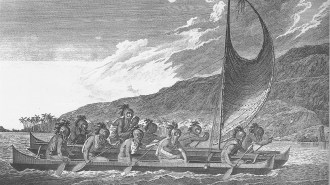 Anthropology
Anthropology‘The Five-Million-Year Odyssey’ reveals how migration shaped humankind
A globe-trotting trek through history shows how past population migrations changed the course of human biology and culture.
By Bruce Bower -
 Anthropology
AnthropologyFamine and disease may have driven ancient Europeans’ lactose tolerance
Dealing with food shortages and infections over thousands of years, not widespread milk consumption, may be how an ability to digest dairy evolved.
By Bruce Bower -
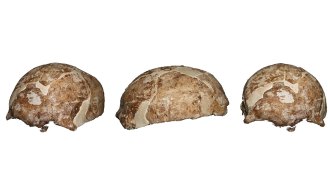 Humans
HumansAncient DNA links an East Asian Homo sapiens woman to early Americans
Genetic clues point to a Late Stone Age trek from southwestern China to North America.
By Bruce Bower -
 Anthropology
AnthropologyDemond Mullins climbed Everest to inspire more Black outdoor enthusiasts
Mullins hopes his successful Mount Everest summit will encourage more Black people to experience the great outdoors.